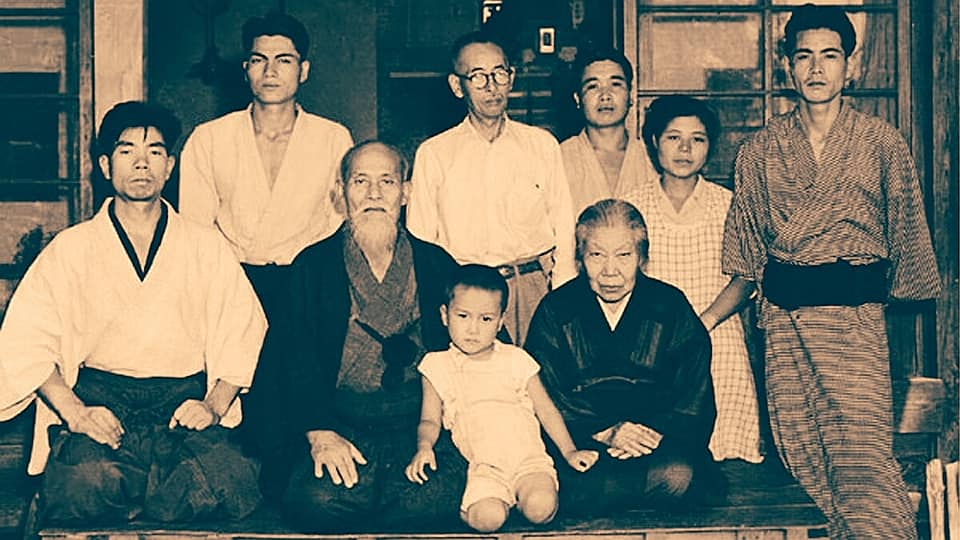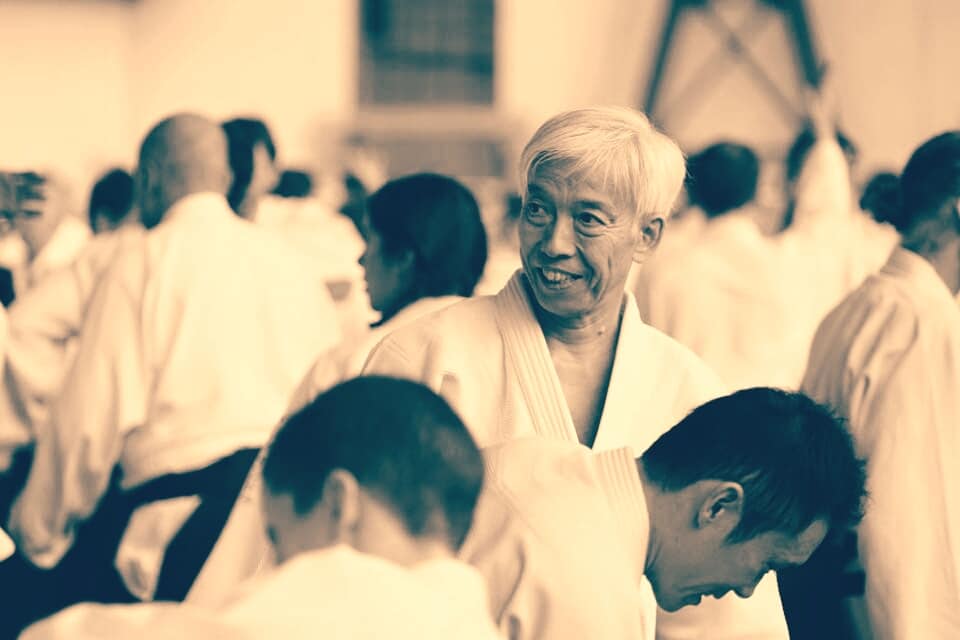Q- What kinds of aspirations do you have as the third Doshu of the aikido tradition? What dreams for the future of aikido do you hope to realize?
A- Ah, I get asked that a lot! (laughs) Aikido was created by one man, then developed and spread by another; what, then, am I to be for aikido? My answer is that what I can do for aikido will not be on such a grand scale. I think my role has more to do with creating and maintaining a path that the many people who have helped bring aikido to this point as well as those who are just discovering it can continue walking together, a path that allows them to continue practicing together with a spirit of friendship and solidarity.
When I was small, aikido was still hardly known to most people, but that has changed and there are now considerably more people who have at least heard of it. Since it has come that far, the task now is to continue to pursue and hand it down in a clear and ordered form that accurately reflects the essence of what it is. So rather than stating that I want to do such-and-such with aikido, or that aikido has to be such-and-such a way, I think it is more important that I simply help to maintain an environment in which we can continue doing what we are already doing so well.
Q- Has your lifestyle changed at all as a result of assuming the role of doshu?
A- Not that much. Before my father’s health declined we used to divide up the teaching commitments in Japan and abroad, but for the last two years of his life he was mostly unable to travel abroad, so I started going in his place. In that sense not much has changed for me, since I’d already started taking over some of those duties.
Still, although what I do hasn’t changed, the sense of responsibility that goes with being doshu is certainly much heavier, so it feels completely different in that respect.

Q- I can imagine. But given your personality, I doubt you’ll be the kind of leader who sits up on a cloud, but rather the kind who is friendly and easy to talk to and get to know.
A- (Laughs) Yes, I hope so! My father’s face at forty-eight was a lot more stern than mine is now at that same age. Of course, he was actually more easygoing than his expression tended to suggest, mostly I think because he was simply brought up in a different, harder era.
Q- The environment of the war years must have had a lot to do with that. There seems to be a difference between people who experienced that era and those who didn’t.
To be sure, people of his generation tend to have a certain austerity about them.
A- Well, I don’t suppose I’ve been able to give you the kind of answers you might have been hoping for. There are probably people hoping I would say things like, “Yes, as the founder’s grandson I trained diligently from the time I was very small!”, but unfortunately I could never get away with statements like that.
Last episode.
Source: Facebook/Aikido



